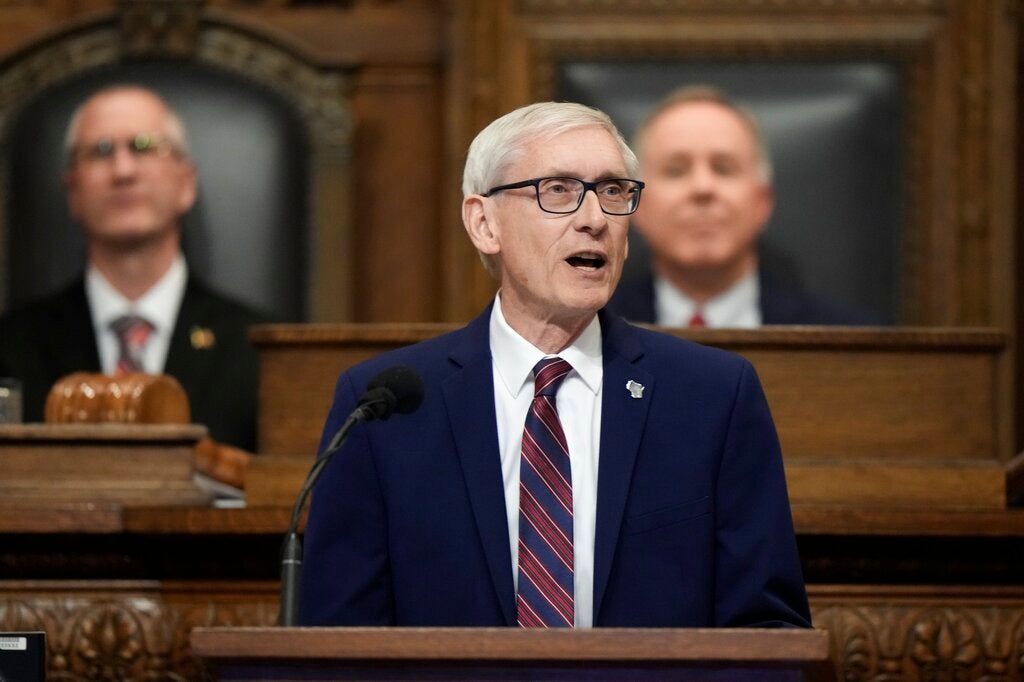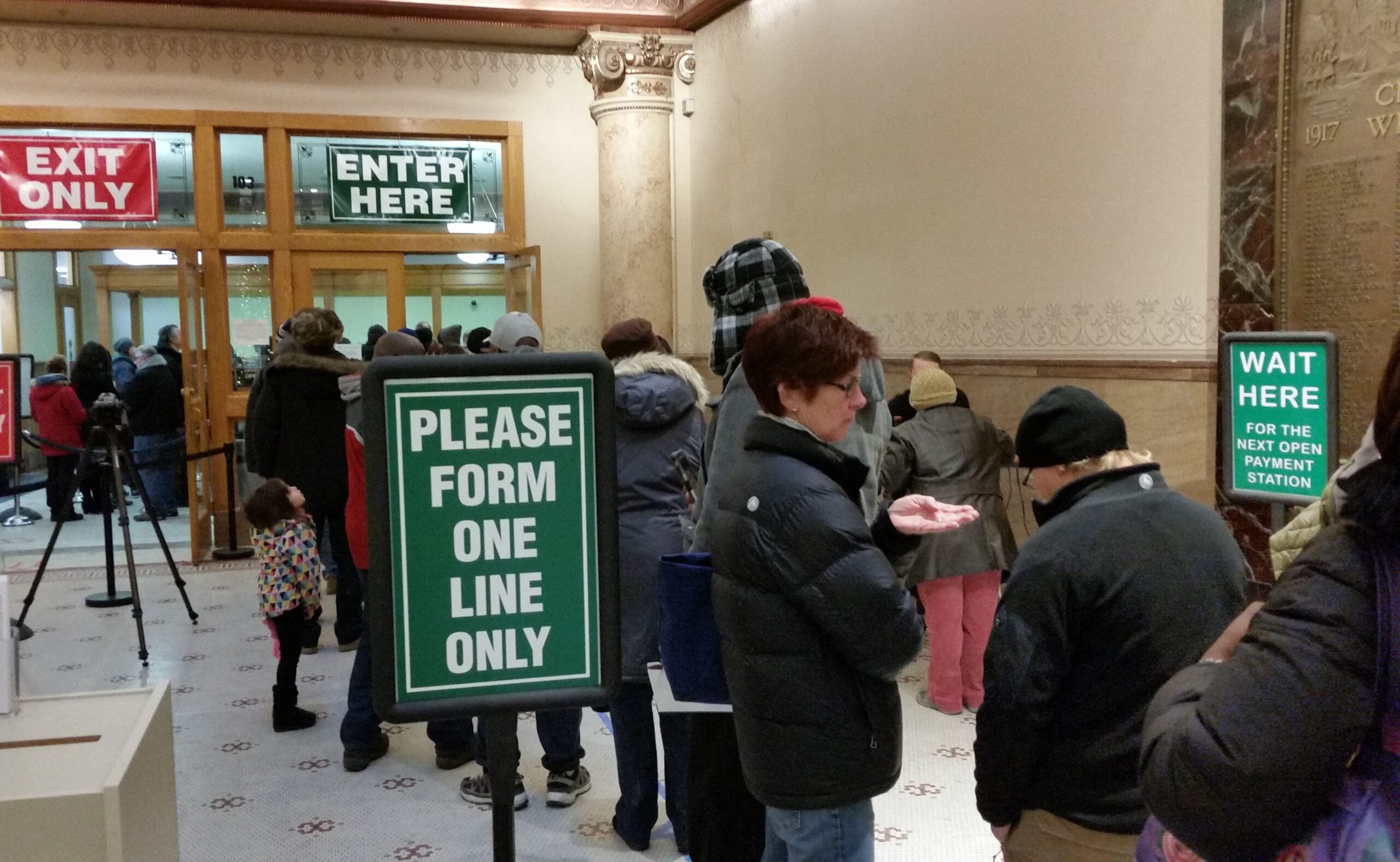Gov. Tony Evers announced new details of his proposal to cut taxes by more than $1.2 billion in the next two-year state budget on Sunday as Wisconsin’s budget surplus has topped $7 billion.
Evers first proposed the tax cut last August that includes a 10 percent state income tax cut for the middle class. Individuals making less than $100,000 and married couples or joint-filers making at or below $150,000 would benefit from the proposal. Evers said the proposal would provide $839.6 million over the budget for low- and middle-income residents with an average cut of more than $200 annually for 1.9 million filers.
“I’ve said all along that we’d deliver real, responsible tax relief targeted to the middle class and working families — not spending big on breaks for the wealthiest 20 percent of earners in our state who don’t need the extra help affording rising costs,” Evers said in a news release.
News with a little more humanity
WPR’s “Wisconsin Today” newsletter keeps you connected to the state you love without feeling overwhelmed. No paywall. No agenda. No corporate filter.
The plan requires approval from the Republican-controlled Legislature. During Evers’ campaign for governor, GOP leaders criticized the proposal as an election year gimmick. Since then, Senate Majority Leader Devin LeMahieu, R-Oostburg, and Assembly Speaker Robin Vos, R-Rochester, have urged the adoption of a flat income tax with LeMahieu proposing a flat 3.25 percent income tax rate. A flat income tax would give the biggest tax cuts to the wealthiest Wisconsinites, as in a progressive tax system wealthier families and individuals pay a higher share of taxes above a certain level of income.
A flat income tax plan is all but certain to be vetoed by Evers. Evers said Republicans’ plan would offer more than $3.5 billion in tax relief to the top 20 percent of Wisconsin’s income earners. The Wisconsin Policy Forum, a nonpartisan research organization, told WPR’s “Central Time” last month that it’s factually correct that lower income earners would benefit more from Evers’ proposal while a flat tax would likely yield more benefits for those with higher incomes.
After Evers’ State of the State speech last month, Vos said Republican lawmakers would likely toss out all the governor’s proposals and write their own budget from scratch, as the Legislature did with the governor’s budget proposals during his first term. Evers was reelected in November.
Wisconsin’s Democratic governor and GOP leaders have frequently been at odds over fiscal policy. Their differing views on tax breaks for residents is just one of many disputes over how to spend the state’s record budget surplus, which is on top of an additional $1.7 billion set aside for Wisconsin’s rainy day fund.
In his budget, Evers is also proposing to:
- Increase the federal Earned Income Tax Credit to more than $300 annually on average for 200,000 families
- Enhance the Homestead Tax Credit to help seniors and increase eligible household income to $35,000
- Expand property tax relief for veterans with disabilities by providing $53.5 million over 2 years
- Create a caregiver tax credit to help with caregiving costs limited to $500 in a tax year, providing $195 million in tax relief over 2 years to around 240,000 taxpayers
- Expand the Child and Dependent Care Tax Credit from 50 to 100 percent of the federal credit in 2023
- Adopt federal tax changes to protect student loan borrowers and adopt remaining provisions of the Tax Cuts and Jobs Act of 2017, which would raise $388.2 million over 2 years
- Repeal the personal property tax, providing more than $200 million to businesses
- Increase a research credit for businesses from 15 to 50 percent in 2024
- Limit the 30 percent long-term capital gains exclusion to individuals making less than $400,000, raising $339.4 million over 2 years
- Limit the manufacturing tax credit to the first $300,000 in qualified production income, raising $655.1 million over 2 years to offset tax breaks for the middle class and businesses
Wisconsin Public Radio, © Copyright 2025, Board of Regents of the University of Wisconsin System and Wisconsin Educational Communications Board.







